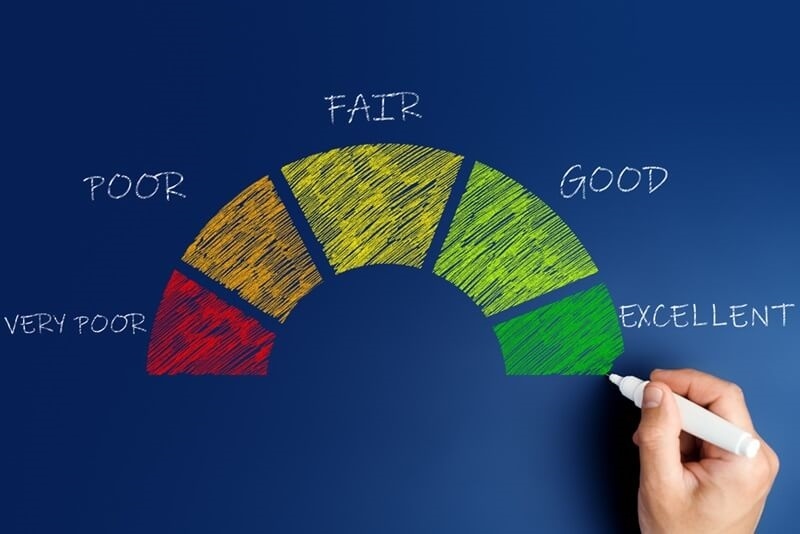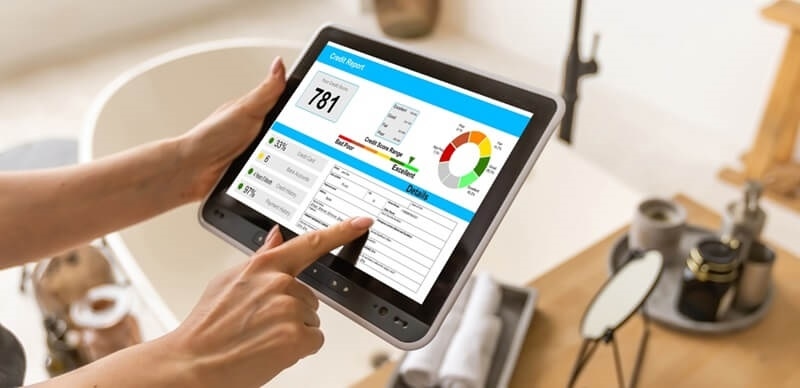
Regardless of whether you're taking out a mortgage, auto loan, or simply a new credit card, your credit score plays a significant role in your financial future. For the majority of individuals, navigating the credit universe is perplexing—especially if you're just starting out. This step-by-step guide will walk you through the fundamentals of U.S. credit scores, describe how credit functions, provide credit report tips, and provide you with doable advice on how to improve credit score if you are beginning from scratch or need to bounce back from bad credit.
A credit score is a three-digit number that indicates your creditworthiness or the likelihood you will repay borrowed money. Most lenders use the FICO Score, which ranges from 300 to 850. The higher the number, the more likely you will be to be approved for loans on favorable terms.
The following brief rundown explains U.S. credit score basics:
Excellent: 800–850
Very Good: 740–799
Good: 670–739
Fair: 580–669
Poor: 300–579
Your score is determined by five primary factors: payment history, amounts owed, length of credit history, credit mix, and new credit inquiries.
Your credit score impacts various areas of your financial life:
A good credit score can save you a lifetime of thousands of dollars. That's why it's not just smart—it's essential—to know how to increase credit score.

Prior to discussing strategies, it's useful to understand your credit report. The report shows you the full extent of your credit history and is used to determine your score.
Beginner credit report tips:
Order Your Report: You are legally entitled to receive one free report annually from all three of the major credit bureaus (Equifax, Experian, and TransUnion) at AnnualCreditReport.com.
Check for Errors: Look for false balances, payments you made but aren't showing, or accounts that are not yours.
Dispute Errors: If you do find an error, contest it immediately with the credit bureau.
Monitoring your credit report is one of the easiest credit report tips to help significantly enhance your credit health.
It's not an overnight miracle, however, to fix your credit score, and with determination and the right mentality, it is well within your grasp. The following are a few tips on how to repair credit score, whether you're starting from scratch or restoring from bad credit.
35% of your FICO Score is made up of payment history. One missed payment can lower your score significantly. Set reminders, set a payment date on your calendar, or use calendar reminders to never miss a payment.
One of the largest factors affecting your score is your credit utilization ratio—the amount of credit you're utilizing versus what you have available to you. Attempt to utilize less than 30% of available credit. If you carry a $1,000 limit, for instance, keep your balance under $300.
This has a direct relationship to the credit card impact on score. Maxed-out cards can seriously hurt your rating, while low balances in relation to your limit will help improve it.
Each time you apply for new credit, there will be a hard inquiry against your report and lower your score slightly. Minimize new applications unless absolutely needed.
The age of your credit history accounts for roughly 15% of your credit score. Leaving open older accounts assists in building a longer credit history. This is another aspect in which credit card influence on score is more complex than mere usage—it's age and persistence as well.
Lenders want to know you can handle different types of credit responsibly. This includes revolving credit (e.g., credit cards) and installment credit (e.g., auto loans or home mortgages). Having a good mix can modestly improve your score over time.
If your score is in the "fair" or "poor" category, don't panic. Millions of Americans have been there and recovered successfully. Here's the method to repair bad credit step by step.
Check your credit report thoroughly. Are there collections? Late payments? High balances? Knowing the reason is the first step in creating a focused plan.
Negotiate with creditors or collection agencies to settle old accounts. Sometimes, they will take less than the total and report it as "paid as agreed" on your report.
Stick to a monthly budget and concentrate on paying high-interest debt. Pay consistently and on time in the future.
You can ask to be added as an authorized user on a family member’s credit card. Their good payment history can help boost your score—a trick many people use when wondering how to fix bad credit quickly.
New to credit? You’re not alone. College students, young professionals, and recent immigrants often ask about building credit from scratch. Here are some practical ways to get started:
This is an easy way to build credit. You make a refundable deposit (say $200), and that is your limit. Use the card for minor charges and pay off the card every month in full.
These are small loans that hold the cash in a savings account until you repay it. They're offered by most credit unions and community banks and are great for building credit from the ground up.
Services like Experian Boost allow you to report payments on utility bills and streaming services to your credit report, which will help build a history of timely payments.
Get a family member or relative with good credit to add you to one of their cards. You don't even have to use the card—their payment history alone can improve your score.
The majority of individuals wrongly believe that credit cards are not healthy for their credit score. But actually, if used correctly, they can be powerful tools to build and improve your credit score.
Here are the key points on the credit card impact on the score:
Positive: On-time payments, low balances, long account history
Negative: Maxing out cards, missing payments, applying for too many cards at once
Credit cards directly influence four of the five credit score factors. Managing them well can be your most effective tactic in learning how to improve credit score.
Now that the basics are out of the way take your strategy to the next level:
Set Alerts: Use a service that will alert you when something is altered on your credit report, like new accounts or hard inquiries.
Use Score Simulators: Most sites will let you see how an action (paying off a card or taking out cash) would affect your score.
Check Reports from Time to Time: Don't wait for the fraud to occur. Check your reports every 4 months by rotating the three bureaus.
Having these credit report tips at your disposal, you're always in charge of your financial future.
Understanding and maintaining your credit is one of the most important steps toward financial empowerment. Whether you’re learning about U.S. credit score basics or are deep into figuring out how to improve credit score, the most important thing is to stay proactive. Your credit health affects more than just loans—it impacts your confidence, financial flexibility, and peace of mind.
Whether you are starting from scratch and building credit, rebuilding from a mistake, or even already having an impossibly high score, it all counts. Just keep checking on your reports, be credit citizens, and celebrate the small victories along the way. Consistency is the name of the credit game.
This content was created by AI